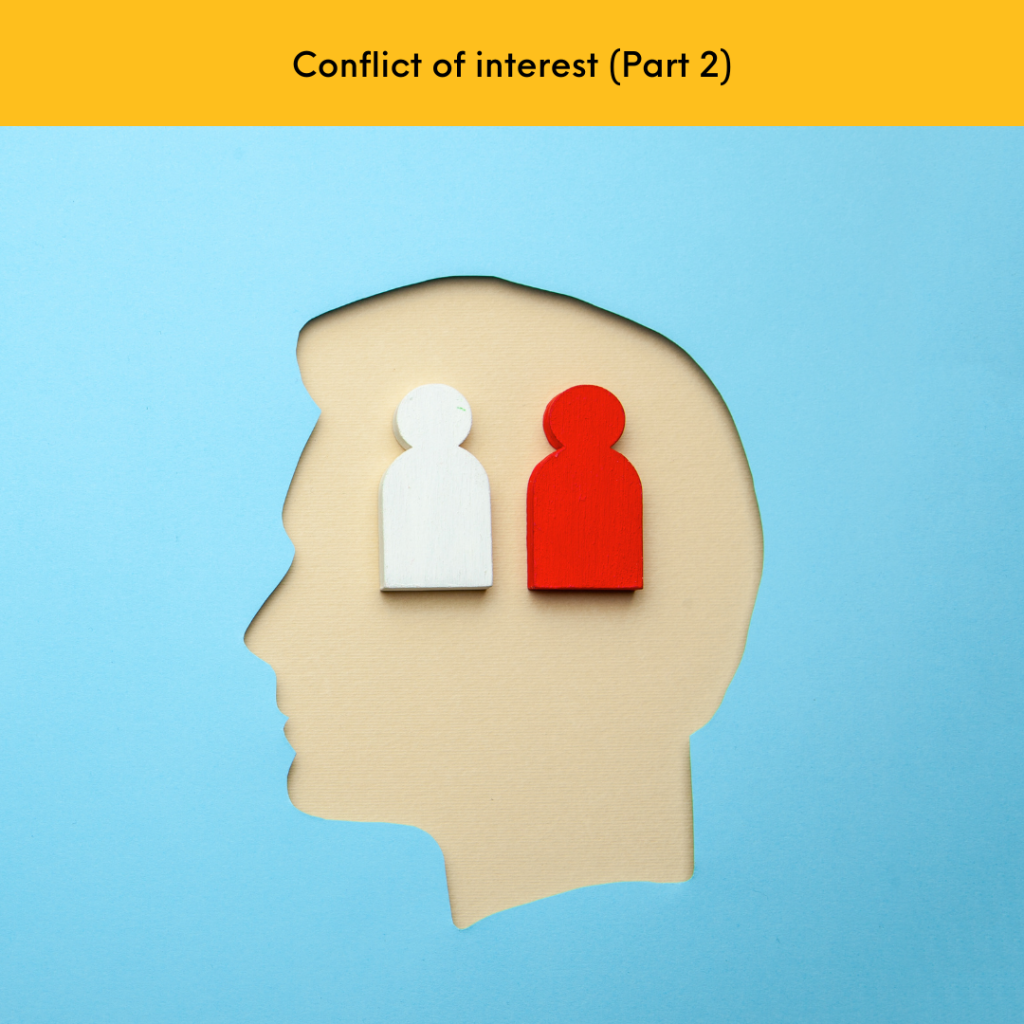
Published 26 September 2022, The Daily Tribune
The Integrated Bar of the Philippines-Committee on Bar Discipline found Atty. Buhangin guilty of violating the rule on conflict of interest. The IBP-CBD believed that in the specific performance case, there was an attorney-client relationship existing between complainant and counsel. Contrary to the lawyer’s claim that he represented the heirs of complainant and his siblings’ mother and not just the complainant, complainant engaged the legal services of Atty. Buhangin for his own benefit and personal interest.
It further held that when Atty. Buhangin filed a complaint against Tulio in representation of his other siblings over legal matters which the former entrusted to him, he clearly violated the trust and confidence reposed to him by his client. Both the specific performance involved the same subject property of the Deed of Waiver of Rights, which the siblings of complainant have executed and signed in favor of complainant Tulio, and which Atty. Buhangin later on used against the complainant.
This series of actions protecting the rights and interest of complainant over the subject property before and after the filing of the specific performance case, to the preparation of the Deed of Waiver of Rights in favor of complainant, runs counter and in conflict to his subsequent filing of the recission case where respondent counsel imputed fraud against the complainant. Such taking of an inconsistent position by counsel, even if prompted by good faith and with no intention to represent conflicting interests, is still in violation of the rule on conflict of interest.
After all, throughout the course of a lawyer-client relationship, the lawyer learns all the facts connected to the case.
Knowledge and information gathered in the course of the relationship must be treated as sacred and guarded with care.
It behooves lawyers not only to keep inviolate the client’s confidence, but also to avoid the appearance of treachery and double-dealing, for only then can litigants be encouraged to entrust their secrets to their lawyers which is paramount in the administration of justice.
The nature of a client-lawyer relationship is, therefore, one of trust and confidence of the highest degree.
In Hornilla vs Atty. Salunat (AC 5804, 1 July 2003), the Supreme Court discussed that the test of conflict of interest is whether or not in behalf of one client, it is the lawyer’s duty to fight for an issue or claim, but it is his duty to oppose it for the other client. In other words, if he argues for one client, this argument will be opposed by him when he argues for the other client. Such rule applies not only in cases in which confidential communications have been confided, but also those in which no confidence has been bestowed or will be used.
Another test of conflict of interest can be touted as the injury test. If the acceptance of the new engagement entails the performance of an act by counsel that will injuriously affect his first client in any matter in which he represents him and also whether he will be called upon in his new relation to use against his first client any knowledge acquired through their connection, then there is conflict of interest.
The third test is the inconsistency of interest test. The consideration is whether the acceptance of a new relation will prevent an attorney from the full discharge of his duty of undivided fidelity and loyalty to his client or invite suspicion of unfaithfulness or double dealing in the performance thereof.
In sum, there is an absolute prohibition from representation with respect to opposing parties in the same case. In other words, a lawyer cannot change his representation from one party to the latter’s opponent in the same case.
For more of Dean Nilo Divina’s legal tidbits, please visit www.divinalaw.com. For comments and questions, please send an email to cabdo@divinalaw.com.

